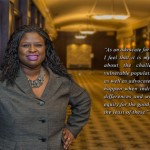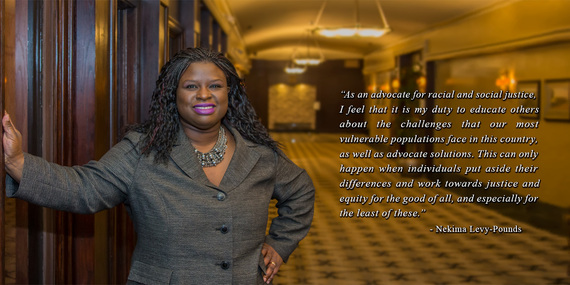
“Schools are the garden for leadership- the places where seeds are planted and first green shoots spotted, tended, and encouraged.” John Adair, How to Grow Leaders: The Seven Key Principles of Effective Leadership Development As the new school year approaches, parents are filling backpacks, college students are buying textbooks, and teachers are finishing their final lesson plans. In the haste of preparing for back to school, a time for reflection is often missed. This leaves questions unanswered such as: What is the purpose of education? What skills will students develop in the classroom? What is in the hands of students to make a difference in the world? Back …
“Schools are the garden for leadership- the places where seeds are planted and first green shoots spotted, tended, and encouraged.”
John Adair, How to Grow Leaders: The Seven Key Principles of Effective Leadership Development
As the new school year approaches, parents are filling backpacks, college students are buying textbooks, and teachers are finishing their final lesson plans. In the haste of preparing for back to school, a time for reflection is often missed. This leaves questions unanswered such as: What is the purpose of education? What skills will students develop in the classroom? What is in the hands of students to make a difference in the world?
Back to school time is also a critical time to pause and reflect on the transformative power of the educational experience. The classroom should become a training ground for leadership development and social justice advocacy. Educators are uniquely positioned to prepare and equip the next generation of leaders. The leadership profile of Professor Nekima Levy-Pounds, University of St. Thomas, featured in my book, The Lawyer as Leader: How to Plant People and Grow Justice, provides inspiration for educators to pick up the mantle of leadership. Professor Levy-Pounds empowers each student that she comes in contact with to lead. She sees the leadership potential in her students and aids them in unveiling this gift. This is evidenced in her teaching. As a passionate educator, she is committed to empowering the next generation of law students to serve and lead in their communities. She begins by sharing her personal experiences related to what drew her to the practice of law. Her story begins with her childhood as she recalls the challenges experienced by her community at the intersections of race and poverty. Her passion for justice was ignited during her early childhood experiences growing up in South Central Los Angeles. She witnessed firsthand the ills of oppression, disenfranchisement, and marginalization from society experienced by communities of color. She states: “[W]hen you grow up in that type of environment… it plays a role in your outlook/perspective and at least for me my desire to change things when it comes to people experiencing oppression.” This desire to change society led Levy-Pounds to create a clinical program, the Community Justice Project (CJP), with an explicit focus on serving in marginalized populations and working in partnership with the community to facilitate the process of social change.
Since the inception of the CJP in 2007, Levy-Pounds has become a leader in Minnesota’s civil rights community. Currently, she serves as the president of the Minneapolis NAACP and host of Real Talk. She and her students work closely with several key partners, such as the St. Paul branch of the NAACP and the Aurora/St. Anthony Neighborhood Development Corporation, to further social change. With these key partners, Levy-Pounds works diligently to dismantle systems of oppression that keep poor communities of color disenfranchised. She believes lawyers have a moral responsibility to engage in this process of eliminating oppression and transforming these systems when she proclaimed: “I want to see the world transformed into an oasis of fairness and justice and that can only come by knowing the power and the privilege and responsibility that I have and being willing to use it.”
This is a call to action. On a daily basis, Levy-Pounds works to build this oasis in partnership with community members, social justice organizations, and the future generation of lawyers–her law students. She seeks to raise the social consciousness of many as she challenges anyone who is willing to listen to become a leader who seeks justice for all. She reaches this goal by providing a critical analysis of the social conditions that disenfranchise and marginalize poor communities of color.
After empowering others to lead, she seeks to compel them to action. She often quotes Dr. King’s prophetic plea to take action due to the “fierce urgency of now”:
We are now faced with the fact, my friends, that tomorrow is today. We are confronted with the fierce urgency of now. In this unfolding conundrum of life and history, there is such a thing as being too late. Procrastination is still the thief of time. Life often leaves us standing bare, naked, and dejected with a lost opportunity. The tide in the affairs of men does not remain at flood–it ebbs. We may cry out desperately for time to pause in her passage, but time is adamant to every plea and rushes on. Over the bleached bones and jumbled residues of numerous civilizations are written the pathetic words, “Too late.” There is an invisible book of life that faithfully records our vigilance or our neglect.
Through this call to action, she has compelled many to take a stand by leading within their sphere of influence. She has motivated many to move from the sidelines to the forefront of a racial justice movement.

— This feed and its contents are the property of The Huffington Post, and use is subject to our terms. It may be used for personal consumption, but may not be distributed on a website.
Originally posted here:
Back to School: A Time to Reflect on How to Train the Next Generation of Leaders

























